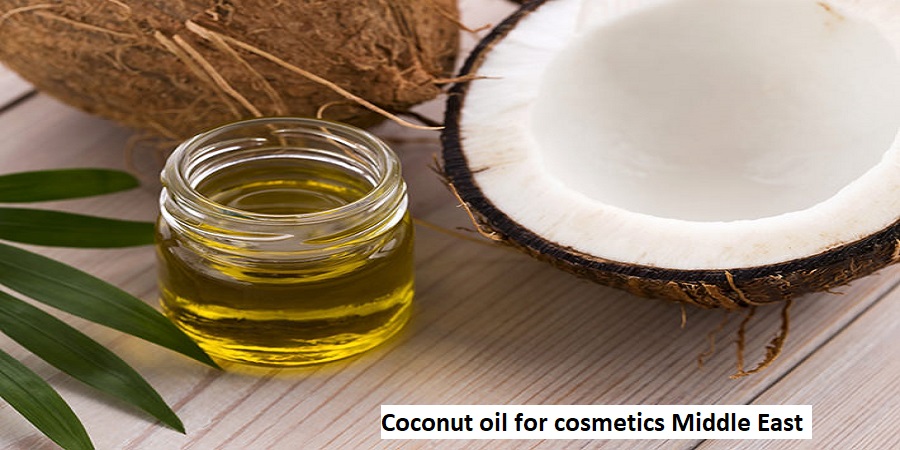
Coconut oil for cosmetics Middle East daivietinternational.com Coconut oil, derived from the fruit of the coconut palm (Cocos nucifera), has garnered attention worldwide for its diverse applications in cosmetics and personal care. This natural oil is primarily composed of medium-chain fatty acids, including lauric acid, capric acid, and caprylic acid, which contribute to its unique properties. The exceptional moisturizing characteristics of coconut oil make it an attractive ingredient for skincare products, as it helps to prevent dryness and promote hydration. Additionally, its antibacterial and anti-inflammatory properties serve as vital benefits, making it suitable for a variety of skin types.
Introduction to Coconut Oil: A Versatile Beauty Ingredient
The cultural significance of coconut oil within Middle Eastern beauty practices cannot be overstated. Traditionally, many communities in the region have relied on natural remedies and organic ingredients for skincare. Coconut oil, with its rich texture and nourishing qualities, aligns seamlessly with these principles, providing a holistic approach to beauty. For instance, it is often utilized in hair treatments, offering shine and manageability while reducing protein loss, thus preventing damage. In the realm of cosmetics, coconut oil is frequently incorporated into formulations for lip balms, body lotions, and serums, showcasing its versatility as a beauty staple.
Moreover, the rise of modern consumers’ preferences for clean beauty products has further solidified coconut oil’s position in the cosmetic market. As awareness grows regarding the harmful effects of synthetic chemicals, many individuals in the Middle East are turning to natural ingredients like coconut oil for their skincare regimens. This trend not only illustrates a cultural alignment with traditional practices but also emphasizes a global shift towards embracing effective, eco-friendly solutions. Overall, coconut oil embodies a powerful and versatile ingredient, inherently entwined with beauty standards and practices across the Middle East.
Coconut Oil Applications in Skincare and Haircare
Coconut oil has emerged as a vital ingredient in skincare and haircare routines, particularly in the Middle East, where its benefits are deeply appreciated. This versatile oil is known for its exceptional hydrating properties, making it an ideal choice for addressing dry skin, a common concern in arid climates. Its emollient nature allows it to penetrate deeply into the skin, providing lasting moisture and creating a protective barrier against environmental aggressors.
Incorporating coconut oil into daily skincare regimens can be performed in various ways. For instance, it can be applied directly to the skin after cleansing to lock in moisture. Additionally, it serves as an effective makeup remover, effortlessly dissolving makeup products while nourishing the skin without stripping away essential oils. Moreover, for individuals suffering from skin conditions such as eczema, coconut oil can help soothe irritation and inflammation, promoting overall skin health.
When it comes to haircare, coconut oil offers remarkable advantages. Rich in fatty acids and vitamins, it provides nourishment and enhances shine, effectively transforming dry and lifeless hair into healthy, vibrant locks. Regular application of coconut oil can protect hair from damage caused by sun exposure and harsh weather conditions often experienced in desert environments. By using coconut oil as a pre-wash treatment or a leave-in conditioner, individuals can significantly improve hair manageability and reduce frizz.
Furthermore, its antifungal and antibacterial properties contribute to a healthy scalp, which is essential for maintaining hair growth and preventing common scalp issues. Overall, the integration of coconut oil into skincare and haircare routines not only aligns with traditional practices in the Middle East but also leverages modern understanding of its potent benefits, making it a staple in cosmetic applications.
Related Articles:Bulk fresh coconut supplier Vietnam
Choosing and Using Coconut Oil: Tips and Recommendations
When selecting coconut oil for cosmetic applications, it is advisable to opt for organic, virgin coconut oil. This type is minimally processed, ensuring that the oil retains its natural nutrients, antioxidants, and beneficial properties. Organic sourcing not only promotes environmental sustainability but also reduces the risk of exposure to harmful chemicals and pesticides. Look for certified organic labels to ensure quality and authenticity. Cold-pressed virgin coconut oil is particularly sought after, as the extraction method preserves the oil’s delicate quality.
Incorporating coconut oil into your beauty routine can be straightforward and rewarding. For skincare, simply warm a small amount of coconut oil in your palms before applying it to your face or body. This method allows for better absorption and hydration. It can serve as a moisturizer, makeup remover, or even a massage oil. For those looking to use it as a hair treatment, applying it as a pre-shampoo mask helps to nourish and strengthen hair. Just a few drops can also be utilized to tame frizz and add shine.
While coconut oil is generally safe for most skin types, it is prudent to perform a patch test beforehand, particularly for individuals with sensitive skin or a history of allergies. Apply a small amount to a discreet area and monitor for any adverse reactions over 24 hours. Always consider your skin type: those with oily or acne-prone skin may need to use coconut oil sparingly, as it has comedogenic properties that could potentially clog pores.
Finally, experimenting with homemade beauty recipes can be an enjoyable way to integrate coconut oil into your routines. Combining coconut oil with ingredients like honey, sugar, or essential oils can yield effective scrubs and masks tailored to your specific needs. This hands-on approach allows for creativity and personalization while honoring traditional practices associated with beauty care in the region.